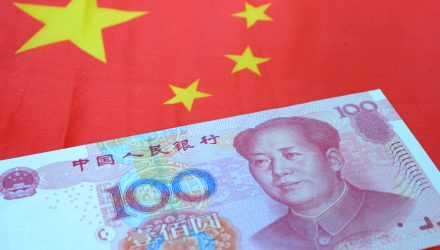Investors looking at China may be able to find bargains given the headwinds the country has been facing over the past year with its real estate development crisis and resurging COVID-19 cases. That said, it could help investors looking for opportunities in certain areas to take into account the country’s zero-COVID policy.
That policy could hamper economic growth with businesses being unable to operate at full capacity with the policy firmly in place. As such, potential investors will have to be aware of the risk involved when it comes to governmental policy when looking at China.
“While some of the current policy support will bear more fruit in Q4, the Covid situation will likely remain challenging into the winter and early 2023, and export growth is set to slow,” UBS chief China economist Tao Wang said in the note, according to a CNBC report.
Opportunities in Utilities and Energy
Regardless of whether there’s a zero-COVID policy in place or not, the country’s citizens will still need utilities and energy. Global X specifically has exchange traded funds (ETFs) focused on China that deal with these sectors.
The first fund to consider is the Global X MSCI China Utilities ETF (CHIU). CHIU seeks to provide investment results that correspond generally to the price and yield performance, before fees and expenses, of the MSCI China Utilities 10/50 Index.
The fund invests at least 80% of its total assets in the securities of the underlying index and in ADRs and GDRs based on the securities in the underlying index. The underlying index tracks the performance of companies in the MSCI China Index that are classified in the utilities sector, as defined by the index provider.
A second option for energy exposure is the Global X MSCI China Energy ETF (CHIE). The need for energy has been apparent as the country has been battling harsh weather conditions lately, increasing the cost of energy to cool homes in a heat wave.
CHIE seeks to provide investment results that correspond generally to the price and yield performance, before fees and expenses, of the MSCI China Energy IMI Plus 10/50 Index. The fund invests at least 80% of its total assets in the securities of the underlying index and in ADRs and GDRs based on the securities in the underlying index, which tracks the performance of companies in the MSCI China Investable Market Index (the “parent index”) that are classified in the energy sector, as defined by the index provider.
For more news, information, and strategy, visit the Thematic Investing Channel.

